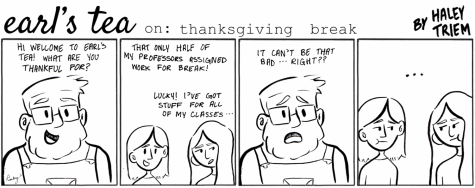Opinion: Iowa should reconsider the death penalty in case of homicide
In response to the most extreme cases, the most just action to take is capital punishment.
The Iowa State Capitol building is seen in Des Moines on April 9, 2019.
November 17, 2019
Issues of life and death are the most serious matters, especially when politics is involved. However, it’s unjust to avoid topics simply because they make us uncomfortable.
Earlier this year, Republican Iowa senators introduced a bill that would allow for capital punishment in certain cases. It never made it to the floor for a vote, but it remains a policy worth considering. It’s time for Iowa to revisit its abolition of the death penalty in the case of homicide.
For both good and bad, Iowa is no longer the wild railroad country of the frontier period where those convicted of murder were hung promptly after their trial. Even then, the death penalty was rarely used. According to the Death Penalty Information Center, only 46 people were executed in Iowa — 43 of whom were convicted of murder — between 1834 and 1963, the year of the last execution in our state.
In 1972, the Supreme Court ruled capital punishment unconstitutional on a federal level. It overturned that decision just four years later, stipulating that individual states must have detailed statutes explaining when execution can be carried out. The choice is given to us as Iowans.
Of course, there are valid counterarguments to the death penalty. A major point critics make is there may be a minority of innocent people wrongly killed by the state. Another rebuttal is the claim that life in prison is a more suitable punishment. Those points are convincing for some, but don’t hold up well under scrutiny.
According to the American Civil Liberties Union, 156 inmates have been exonerated from death row since 1976. While the ACLU may claim that’s proof the system is imperfect, it merely demonstrates that federal and state officials are doing an excellent job of correcting mistakes before they become irreversible. Advances in investigative technology and the use of DNA evidence have significantly reduced the likelihood of wrongful executions. Also, the rigorous appeals process gives law enforcement enough time to make the right call.
Loved ones of victims of heinous crimes deserve to see the perpetrators experience the strictest punishment allowed within the confines of the law.
Loved ones of victims of heinous crimes deserve to see the perpetrators experience the strictest punishment allowed within the confines of the law. This is made exceptionally clear when applied to cases involving racial justice.
In 1981, Ku Klux Klan member Henry Francis Hayes lynched Alabama teenager Michael Donald. Hayes and an accomplice took Donald’s body to a party hosted by fellow Klan members where they hung it from a tree. (Opponents of the death penalty rarely mention the gruesome details of such cases.) Hayes was prosecuted, sentenced to death, and appeals were fought off to ensure the execution was carried out. The successful prosecution enabled a $7 million victory in a landmark civil suit against the Alabama Klan, which effectively bankrupted the hateful organization.
In a separate 2011 ruling, Supreme Court Justice Stephen Breyer’s dissent contended that spending decades of life on death row amounted to cruel and unusual punishment — which the Eighth Amendment explicitly forbids. Fellow Justice Clarence Thomas countered this argument, pointing out death-row inmates taking advantage of the appeals process and then complaining about the trauma of waiting too long to be executed.
Either way, the current system takes too long. While the justices disagree on the reasoning, both sides come out against decades-long stays on death row. The conclusion must be that life in prison is not a suitable substitute for the most heinous and evil of crimes.
Iowa offers no true deterrent to murder by abstaining from capital punishment. Decades in prison with does not match the damage done by homicide. Nothing can undo a life unjustly taken, but in these extreme cases, the death penalty is the most we can and should do.
Columns reflect the opinions of the authors and are not necessarily those of the Editorial Board, The Daily Iowan, or other organizations in which the author may be involved.


















